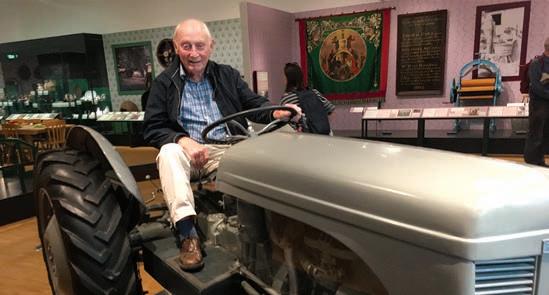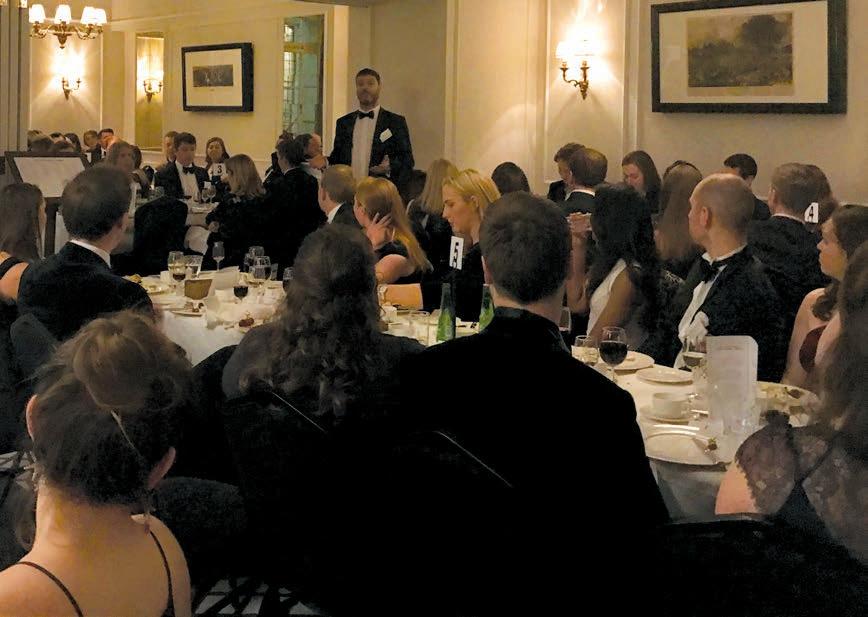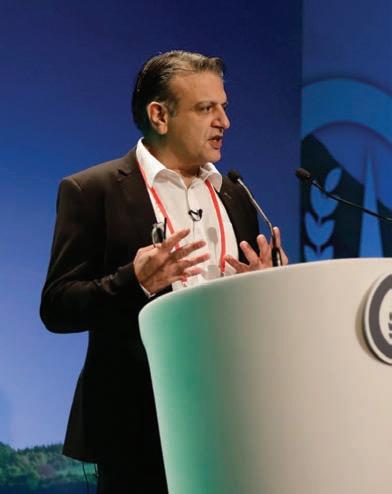
2 minute read
City of Beasts
CITY OF BEASTS Hardback £25.00 Paperback £13.99 www.cityofbeasts london.info www.manchester universitypress. co.uk/978152 6150325/ YOU are about to enter an unfamiliar world, a city at the dawn of the modern age in which large, four-legged animals abound and influence every aspect of urban life.
You will follow in the hoof and paw prints of the city’s horses, cows, sheep, pigs and dogs to wherever they may lead, from West End mews to East End industrial yards.
You are heading where few historians have ventured. Watch your step, hold your nerve / nose and be ready to jump out of the way of speeding carts and enraged bullocks.
Farmers Club members are sure to be fascinated by the powerful imagery conjured by author Thomas Almeroth-Williams as he traces the historic intersection between livestock and London.
‘City of Beasts: How animals shaped Georgian London’ includes chapters on cow- and pig-keeping in the city, and another on the Smithfield livestock trade, plus a wealth of material on horse work and canine crime prevention!
The author, a University of York Research Associate, is a pig farmer’s son, hence the sympathetic desire to understand the challenges faced in managing livestock in such a busy urban environment.
Animals are placed centre stage in the major debates of eighteenth- and early nineteenthcentury English social and urban history, as he reassesses London’s role in the industrial, agricultural and consumer revolutions.
“Beautifully written, attentive and thoughtful, City of Beasts is alive not only with the sights, sounds, smells of the eighteenth century metropolis, but also with its animal voices,” says Lucy Inglis, author of Georgian London: Into the Streets.
The nine chapters range across 308 fascinating pages, from mill horses to watch dogs, with 29 black and white images, many never before published, and five maps.
“Almeroth-Williams interrogates a lost world of human-animal relations to expose something quite new,” comments Professor Tim Hitchcock, Co-Director of The Old Bailey Online. “This book will change how you see the pre-industrial world and every mutt you meet on the street.”
• Share your cracking reads with fellow members – email: editor@thefarmersclub.com
CARAS SECRETARY CHANGE After 18 years in office, Prof Malcolm Stansfield MBE, is to retire from his position as Secretary of the English Panel of the Council for Awards for the Royal Agricultural Societies (CARAS) in June. A popular member of The Farmers Club and frequent visitor to Whitehall Court, Malcolm is to be replaced by Milly Fyfe a former NFYFC chairman, who has worked for RABI and the Shorthorn Society, and was an active member of the Farmers Club Under 30s. https://royalagriculturalsocietiesawards. org/about-caras/











